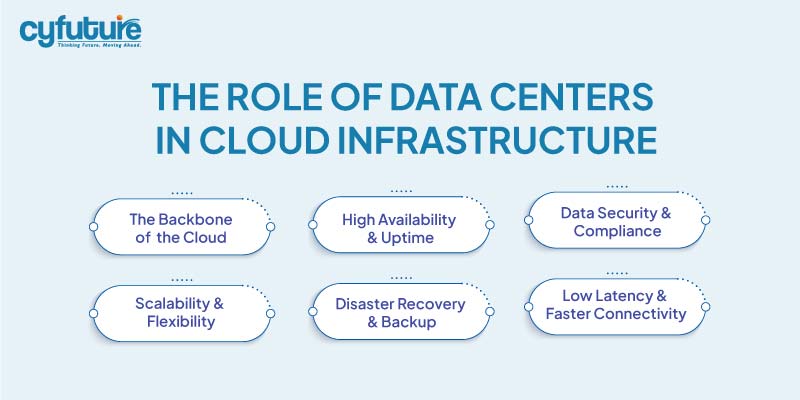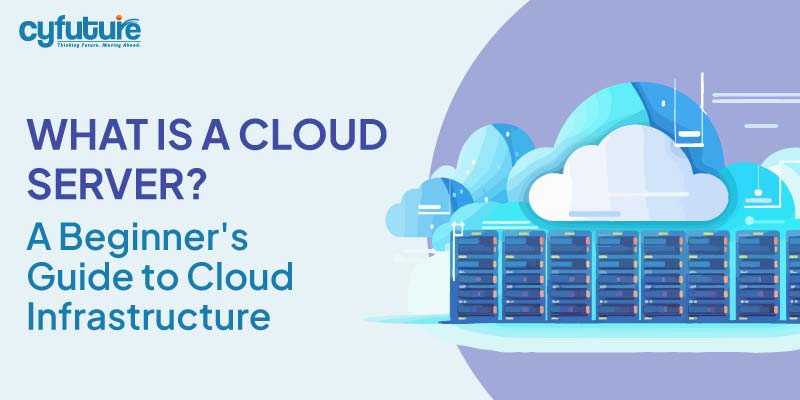 2590 Views
2590 Views
Nowadays, understanding cloud technology is super important! It’s critical for companies, big or small, students, and professionals.
The central part of this tech? The cloud server, of course!
This guide is designed to explain cloud servers and the infrastructure below, offering a broad knowledge suitable for SMBs, large companies, students, and professionals.
Understanding Cloud Servers
A cloud server is a virtual server that operates within a cloud computing environment. Unlike regular servers, cloud servers aren’t tangible or placed on-site. They’re located in data centers, and you can reach them via the Internet. This virtualization enables numerous users to utilize resources simultaneously, ensuring top performance and security.
Cloud servers can be categorized into three main types:
- Public Cloud Servers: Public Cloud Servers are overseen by third-party companies. They give a bunch of resources to clients through the web. Perfect for businesses craving adaptability, these servers are budget-friendly and can be expanded easily.
- Private Cloud Servers: Private Cloud Servers are unique servers set apart for a single organization. They offer increased security and control. Usually, you can find them on-site or in a specific data center.
- Hybrid Cloud Servers: Hybrid Cloud Servers combine elements from public and private clouds. They allow organizations to use the best features of each kind. Resources can be moved flexibly depending on workload needs.
Key Characteristics of Cloud Servers
- Virtualization: Cloud platforms employ a neat trick called virtualization, letting many virtual servers run on a single actual server. This smart move helps to use resources fully and cuts costs.
- Demand Resources: Cloud servers hand over resources whenever needed. It gives businesses the power to alter their size as and when required. This flexibility is crucial for handling varying workloads.
- Accessibility: Accessing cloud servers from anywhere due to their internet hosting allows for more accessible remote work and collaboration.
- Cost-effectiveness: Firms pay only for what they use, which could mean lower costs than maintaining their servers.
- Disaster Recovery: Many cloud services include disaster recovery plans. This ensures your data is safe and can be recovered if something goes wrong.
How Cloud Servers Work
Cloud servers function using an extraordinary tech called virtualization. It’s like a super-manager, the hypervisor, that divides actual servers into many virtual ones. Each of these virtual servers works like a separate server. Users from anywhere can reach these virtual servers over the internet. This makes handling and using apps a breeze.
The architecture of cloud servers typically includes the following:
- Virtualization Layer: This program isolates the physical hardware, allowing several VMs to operate on a sole physical server.
- Storage Systems: Cloud providers utilize distributed storage systems to guarantee data duplication and availability.
- Networking Components: It enables communication between cloud servers and users through the use of sophisticated routing technologies to enhance performance
Benefits of Using Cloud Servers
The adoption of cloud servers offers numerous advantages:
- Scalability: This lets groups change resources based on need, without considerable hardware costs. This adaptability is critical for companies growing or with varying seasons.
- Cost efficiency: The pay-what-you-use pricing plan charges businesses just for used resources. This eliminates initial expenses linked to buying equipment and lowers overall ownership costs.
- Reliability: Cloud services promise excellent uptime rates by utilizing duplicate systems and consistently backing up data. This reliability ensures that company operations will go on without a hitch in the event of hardware failures.
- Security: This reliability ensures that company operations will go on without a hitch in the event of hardware failures.
- Accessibility: This reliability ensures that company operations will go on without a hitch in the event of hardware failures.
- Performance: Cloud servers can handle complex computational tasks efficiently due to their powerful processing capabilities. This performance is particularly beneficial for applications requiring significant computing resources.
Choosing the Right Cloud Server
When selecting a cloud server, organizations should consider several factors:
-
Workload Requirements: Assess the nature of applications to be hosted, including processing power and storage needs.
-
Security Features: Assess the security measures provided by potential providers, mainly when dealing with confidential information.
-
Scalability Options: Make sure the selected server can adjust to evolving business needs without causing significant interruptions.
-
Cost Structure: Evaluate pricing structures to discover a resolution that falls within financial limitations without compromising performance standards.
-
Provider Reliability: This reliability ensures that company operations will go on without a hitch in the event of hardware failures.
The Foundation of Cloud Infrastructure
The cloud structure is a mix of hardware and software components. Its role? To power cloud computing services. Providers depend on this mix, composed of hardware servers, storage mechanisms, network tools, and virtual technologies. Research states that about 82% of IT heads plan to shift their IT workloads to cloud-based IaaS. Are you curious about how cloud servers function? First, understand the cloud structure.
Components of Cloud Infrastructure
- Physical Servers: These are essential cloud infrastructure components, as they are robust machines located in data centers. These servers offer the required processing power and storage to support cloud services.
- Storage Solutions: Cloud systems use different storage tools like block storage, object storage, and file storage. They help manage and keep data effectively.
- Networking: It’s about how well we connect to the internet, how we move data between servers and users, and hooking up physical servers. Good networking design is needed for these.
- Virtualization Technologies: Think of tech like VMware or Hyper-V. They split physical resources into many virtual ones. This makes things work better and be more flexible.
- Management Software: Apps to manage cloud resources helps users. They make it easy to set up and check resources. You can also divide and oversee workloads.
The Role of Data Centers in Cloud Infrastructure
The backbone of any cloud service is its data center in India, businesses like Cyfuture India Pvt. Ltd. operate contemporary data centers designed for safe, effective cloud infrastructure storage.

Key Features of Data Centers:
- Redundancy: Data centers duplicate systems like power, cooling, and network connections, ensuring uninterrupted service.
- Scalability: They’re built to expand to meet growing demands. Just add more servers or storage as needed.
- Security: Security is front and center with surveillance systems, biometric access controls, and fire suppression systems. Their job? Stop unauthorized entry and protect against environmental threats.
Importance of Local Data Centers
Having data centers located within India provides several benefits:
- Reduced Latency: Using homegrown data centers lessens data transmission wait times, offering quicker app use for people in India.
- Compliance with Regulations: Companies can adhere to their own country’s data regulations, protecting private information by storing it within national boundaries.
- Support for Local Businesses: Indian businesses can tap into local facilities to deliver tailor-made support services that accurately match the distinct needs of various areas.
Data Center India for Cyfuture India Pvt. Ltd.
Cyfuture India Pvt. Ltd. manages advanced data centers in India, offering dependable cloud infrastructure solutions. Here’s why their data center India are significant:
- Local Presence
Establishing a data center in India enables companies to take advantage of fast access to their applications and data with minimal delay. This boosts efficiency, guaranteeing that users receive quick and dependable service.
- Compliance and Security
Cyfuture’s data center India strictly follows security protocols and compliance regulations to protect sensitive data and enable businesses to operate confidently.
- Advanced Technology
Cyfuture’s data centers, furnished with cutting-edge technology, offer high-performance cloud servers that meet the needs of contemporary businesses. Their infrastructure enables companies to grow and innovate by supporting advanced applications and workloads.
- Scalable Solutions
Cyfuture provides customizable cloud solutions specifically designed to meet Indian businesses’ specific requirements. If you are a startup or a large corporation, their services can be tailored to suit your needs.

Conclusion
In summary, grasping the concept and functionality of a cloud server is crucial for individuals working in contemporary business or technology fields. Cloud servers are now vital for businesses wanting better IT. They offer many benefits like scalability, cost savings, dependability, protection, easy access, and high performance.
As businesses move more towards digital solutions, putting money into cloud systems won’t just make things run smoother but also keep them ahead in an ever-evolving market. Exploring choices such as the services offered by Cyfuture India Pvt. Ltd. could provide crucial information on how to make the most of cloud technology for those thinking about or wanting to improve their infrastructure.
Related Posts in This Category

